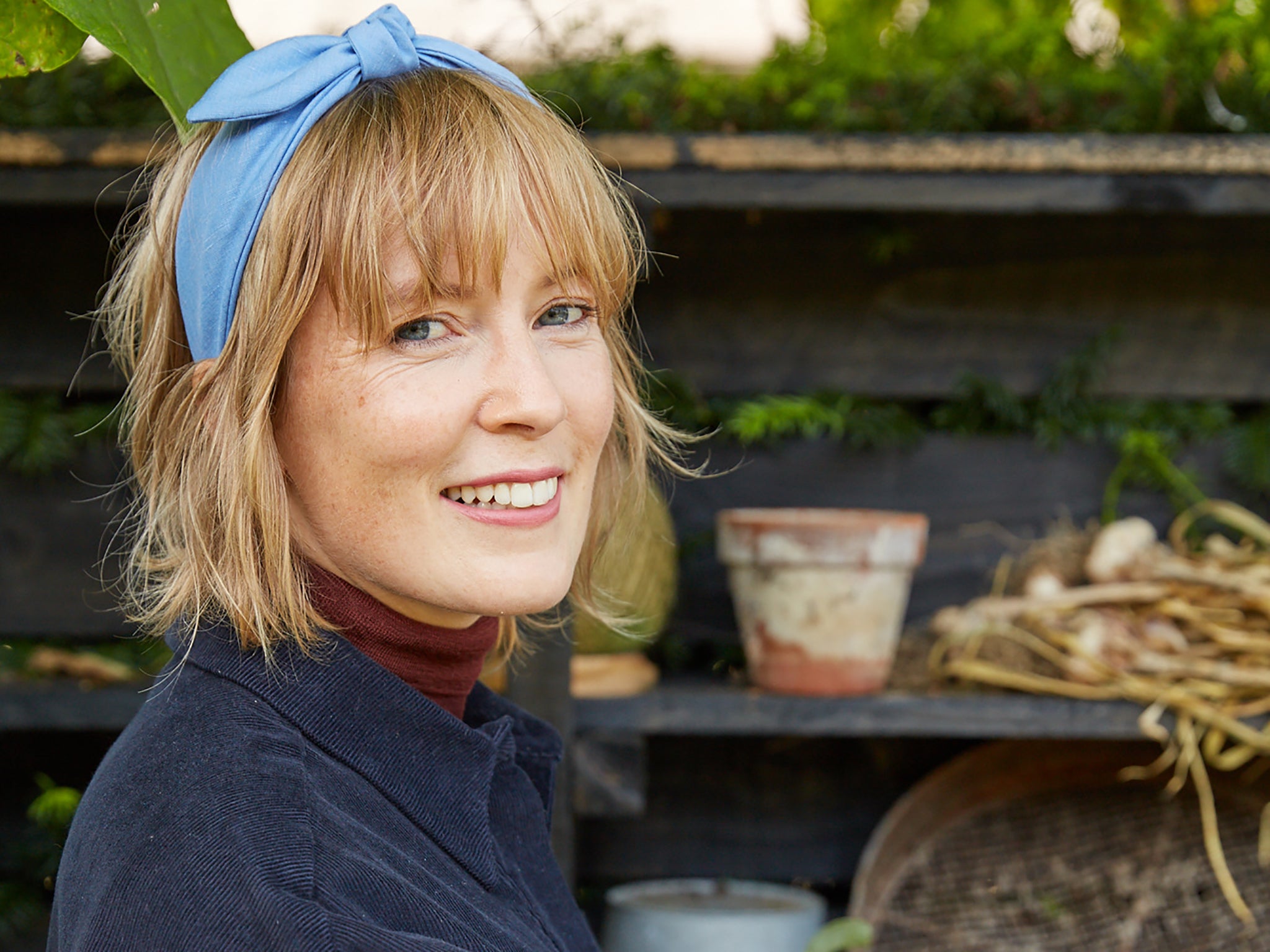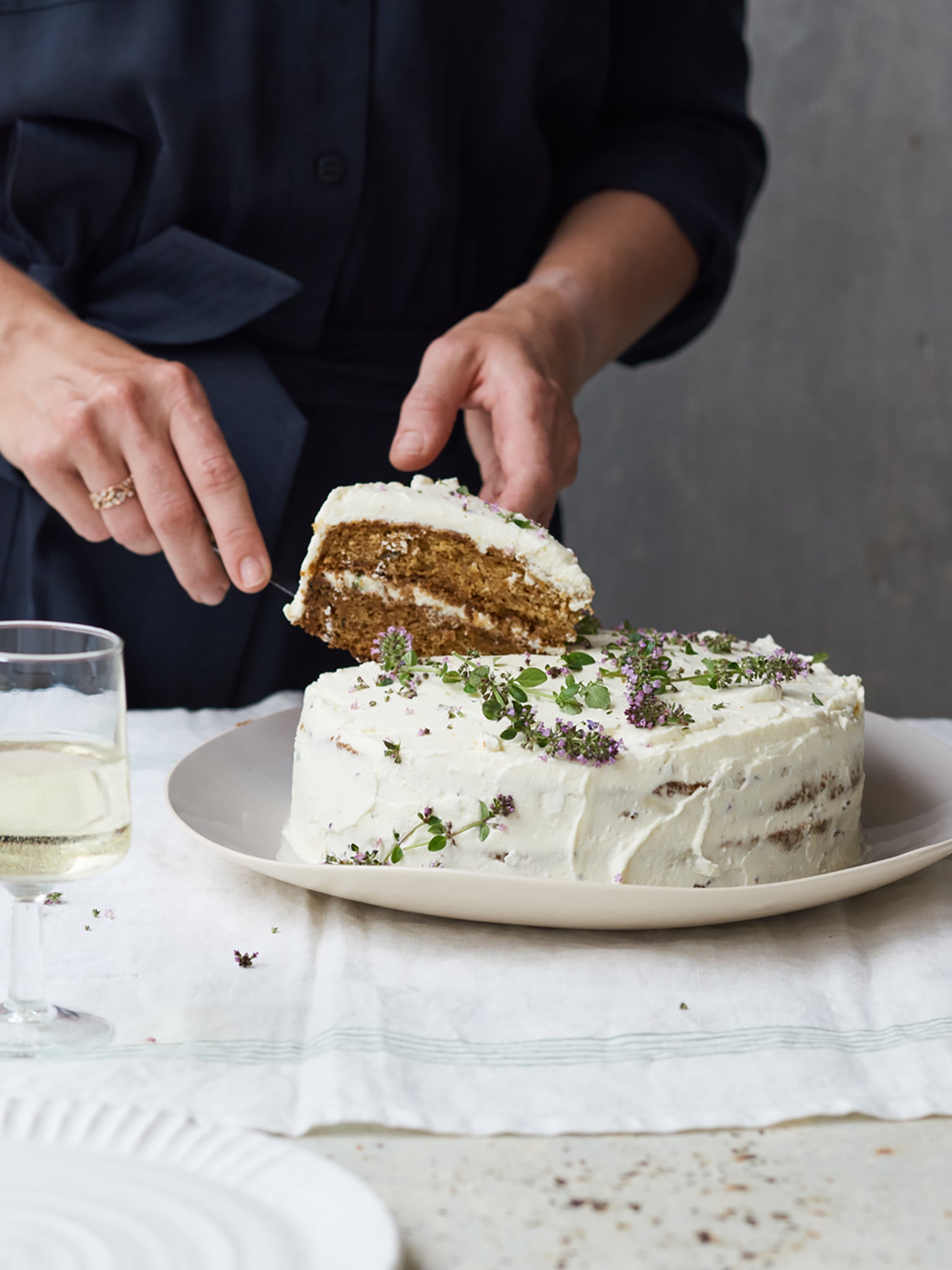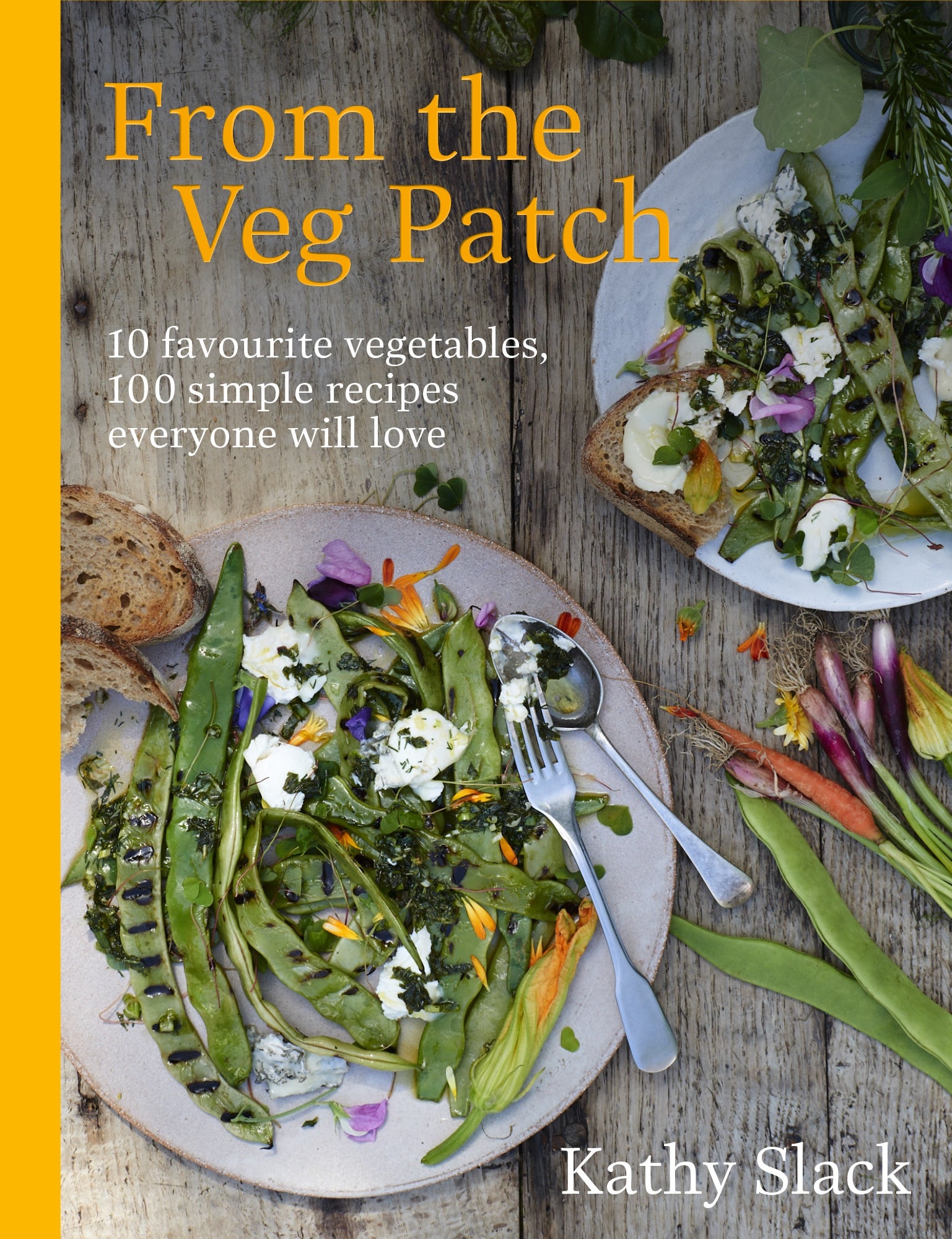Kathy Slack: ‘Life isn’t Instagram’
After quitting the rat race, vegetables became food writer Kathy Slack’s saviour. She chats to Hannah Twiggs about the link between her veg patch and her mental health, how she maintains balance and her top tips for novices and green thumbs alike


It’s a tale we’ve heard before, and one we’re hearing more and more: person leaves stressful job (usually in advertising) in the city, moves to the countryside to reconnect with nature, and lives happily ever after.
“Well, it all sounds very idyllic,” Kathy Slack tells me. She would know, having moved to the Cotswolds in the hope of some respite from the rat race. But, now with an extra four-hour commute on top of an already packed schedule, burnout and depression took hold. She quit, with no idea what to do next.
It was in the garden that Slack found solace. Wandering, weeding, scattering the first seeds of what would eventually become a prolific veg patch from which she rebuilt a new career, a new life.
“Without sounding too glib about it, part of the reason I love vegetables so much is because they have been my saviours,” she writes in her debut book From the Veg Patch, which chronicles a full year in the garden, celebrating her 10 favourite things to grow and the most exciting ways to eat them. This has since evolved into a podcast of the same name, in which she aims to provide “15 minutes of rural tranquility” to her listeners.
As her favourite time of the gardening calendar approachs (“Late August, early September is the heaven ... there aren’t too many jobs and the harvests are spectacular”), we catch five minutes with the busy cook to talk about the effect switching to an agrarian way of life has had on her mental health, managing the ebbs and flows of a busy veg patch schedule, and her advice for novices and green thumbs alike.
In your own words, how did you get to where you are now?
I’m not sure I’d recommend burnout and depression as a way to discover your true purpose in life, but it was certainly the push I needed to change things, if a little dramatic. I always hankered after country life and the idea of growing, though my only experience of it was a few fuchsias in pots on my basement flat windowsill in London and binge-watching River Cottage. So it seemed a natural refuge when I was unwell.
Once I recovered, I didn’t have a grand plan to shift careers and become a food writer. I just did things I enjoyed, delighted to be enjoying anything again and grateful that I had the security and freedom to do that. I worked in a kitchen garden, then a cookery school, then did some private cooking work, started writing a bit more, started photographing the veg and just kept on going, learning and loving it as I went. No direction apart from towards the joy.
I think it’s sometimes tempting to create a narrative that’s straightforward – got ill, got better, made new life that was shiny and wholesome – but it’s really not like that. Life isn’t Instagram. I wasn’t a linear progression, just bits and bobs that accumulate over time, and there have been many twists, wrong turns, ups and down along the way.

How does being in the garden and growing and cooking your own vegetables affect your mental health?
It’s magic, really. At once calming, but also engergising and inspiring. To see nature carrying on regardless is very reassuring and makes my worries seem smaller. It also gives you agency, to see something you sowed as a tiny seed turn into a huge plant is very empowering. And at the same time, all the harvests are filling me with ideas and inspiration so it’s the perfect combination for me.
Name 3 of your biggest garden mistakes, and what you learnt from them.
1. Thinking bigger is better. I had a few different growing spaces on friends’ smallholdings before I build a small raised bed kitchen garden at home. The former were big spaces, three or four times the size of the home plot, but I much prefer growing small and growing at home. It’s more manageable and so inspiring to see the veg from the kitchen window.
2. Running before I could walk. When I first started growing I went all in and tried to grow crops that were, unbeknownst to me, really technical like melons and cauliflowers. It would have been much better to start simple and have a few easy successes.
3. Growing potatoes. I know this will be controversial, but honestly, why did I bother?! They take up loads of room, are cheap as chips (literally!) in the shops, and don’t really taste much better home grown than shop bought. I don’t really even eat many potatoes. If you’ve loads of space, then fine, but I’ve crossed them off my growing list.
What’s your favourite time of year for growing and/or cooking veg and why?
Late August, early Sept is the heaven. There aren’t too many jobs to do apart from weeding and watering, and the harvests are spectacular. You have the summer crops in full swing – courgettes, aubergines, beans etc – but the autumn crops like kale and other brassicas are just starting to arrive too.
How organised do you have to be to keep on top of the veg patch? Is it a full-time job or do you sometimes just wing it? Do you have to plan the rest of your life around planting and harvesting?
I very much wing it. I do have a planting plan, but I never adhere to it because I get distracted by, for example, a packet of x I see in a shop which I can’t resist and have to make room for.
I do plan my holidays around the patch though. Why would you go away in July when the harvests are abundant and the patch is likely to need lots of watering. Plus, who could leave a tomato plant at this crucial stage?
Your debut book From the Veg Patch (which I adore, by the way), was shortlisted for a GFW award this year alongside Ruby Tandoh, who won, and Ed Smith. How did that feel?
Thank you. I was quite flabbergasted to be honest. It’s lovely to be amongst such talented company and a real honour to be shortlisted for my first book.
Talk me through the process of coming up with a new recipe. For example, does it start out in the garden looking at what’s growing then and there, or is there some kind of overarching plan to pair ingredients together?
Yes, it mainly starts in the garden. Either I’m sowing seeds and pondering what I’ll do with the crop when it comes to fruition. Or I’m cooking and gazing out of the window at the patch when I spot, say, the huge triffid-like tarragon plant and think, ‘oooh that would go with the mushrooms I’m about to fry’. The garden guides you too. ‘What grows together, goes together’ as the saying goes, so if it’s cropping at the same time – basil and tomatoes, say - you can be pretty sure it will go well together in a dish. It’s very organic, pun intended, and, for me, it’s the most exciting part of the whole process.
Do you think growing your own veg has made you go back to a simpler way of cooking or has it made you more adventurous in the kitchen?

Very much simpler. When you’ve grown the vegetable yourself, you’re so delighted with it that you don’t want to smother it in sauces, foams and frippery. You just want to put it on a plate and adore it, front and centre of the meal. This makes for much simpler cooking which I love. I can’t bear it when a plate feels more full of a chef’s tricks than good ingredients.
The recipes in the book are veg-centric, but not necessarily vegetarian. I think a lot of people struggle with the idea of a vegetable being the focus of a dish (though that has changed in recent years). What would you say to those people?
It’s true. And I think the key is to get yourself out of the notion that a ‘proper’ meal must be have a protein-based central focus with stuff on the side in support – which comes from the ‘meat and two veg’ tradition. I think this is really limiting when you’re working with vegeables because it confines you to nut roasts and quiches as a central focus or bowls of risotto. But it’s not necessary. As long as the flavours all work together, you don’t need a central focus to the meal.
The podcast seems like a very natural format for the book, which is dotted with such lovely and easily digestible stories and tidbits, but I was perhaps surprised to learn that a podcast is such a good platform for gardening. What are you hoping to instil in your listeners? Is it meant to be a guide people following along with at home, or just listen to on the go for a bit of (very soothing) inspiration?
I’m aiming for 15 minutes of rural tranquillity. I want to recreate the calm, contented feeling I get from being in the veg patch in podcast form for people who maybe can’t get into nature as easily. One listener told me they play the podcast as a way of relaxing and sending themselves to sleep at night. Which I take as a compliment!
Let’s talk about advice for people just getting into this. What are some easy starter plants and your top tips, and what’s your advice for someone growing on a balcony vs someone with a garden?
Start simple. If you’re growing in pots and have never grown before, don’t start with tomatoes. They’re a bit tricky sometimes. Go for easy wins like lettuces or radishes which are fast growing, delicious and easy. Peas are great in pots or small spaces too and don’t need much watering (which is a major consideration if you’re on a balcony).
For the seasoned grower, what’s something you recommend that they might not have tried before?
Kohl rabi. I’d never grown it before until this year and it’s a revelation. Really easy to grow and so much sweeter and crunchier than shop-bought.
‘From the Veg Patch’ by Kathy Slack (Ebury Press, £25; photography by Kathy Slack).
Join our commenting forum
Join thought-provoking conversations, follow other Independent readers and see their replies
Comments
Bookmark popover
Removed from bookmarks